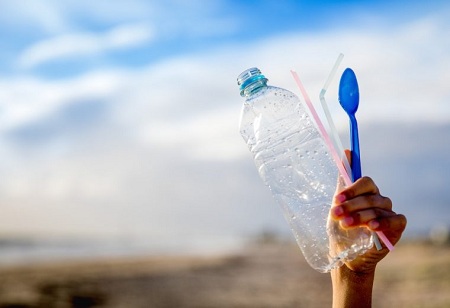Greater participation by private stakeholders and other members of the value chain is crucial to building a holistic, circular plastic ecosystem to reduce plastic leakage into nature, the World Wide Fund for Nature India (WWF India) said in a case study on Flipkart's sustainability efforts.
Titled “Designing sustainable packaging in E-Commerce: A WWF India Case Study on Flipkart Group”, the study outlines measures that businesses in the same space need to undertake and the ecosystem support needed to incorporate targets towards plastic reduction and its management in their value chain. The case study also outlines measures for businesses to venture into different designs of packaging and distribution models to improve recycling and recovery rates.
Commenting on the findings of the study, Varun Aggarwal, Associate Director - Sustainable Business at WWF India said, “A coordinated approach between e-commerce companies and all the other stakeholders in the plastics value chain is crucial to attaining a circular economy for plastics , Flipkart has a large secondary packaging footprint, making plastic waste management a key lever in its commitment to sustainability. The best practices adopted by Flipkart can be replicated by players in the same space to contribute to the mitigation of plastic waste”.
Flipkart Group companies, including e-commerce marketplace Flipkart and leading fashion destination Myntra have eliminated 100% single-use plastic packaging in their own supply chain by working with several stakeholders across traceability,
plastic reduction and brands and universities to name a few. It is also working towards adopting circularity in its plastics value chain in collaboration with sellers and brand partners.
The study further mentions that companies need to customize interventions to influence consumer behavior and collaborate for improving and innovating the existing collection and recovery infrastructure and grow it further. Market leaders need to set up goals for their supply chain who wish to similarly engage and bring about a better plastics waste response to ultimately contribute towards a circular plastics economy and greater good of the society.
Mahesh Pratap Singh, Head of Sustainability and Social Responsibility said, “As a homegrown e-commerce organisation, the Flipkart Group is committed to building a sustainable business while playing the role of a catalyst in the creation of a thriving sustainable ecosystem. We are excited to have achieved a milestone of eliminating 100% single-use plastic packaging in our supply chain in a short span of time and look to aggressively work towards pushing the goal for our sellers and brand partners. We’ve also committed to sourcing from environmentally sustainable sources by working with various partners and becoming a proactive force for a better good. The WWF case study throws light on our efforts and offers a direction for the larger industry to come together for a greater cause”.
Through this case study, WWF has highlighted the need for active participation by the private stakeholders to ensure a holistic, circular plastic ecosystem to reduce plastic leakage into nature. As a leading digital platform engaging in online commerce of goods and services, Flipkart has a large secondary packaging footprint, making plastic waste management a key lever in its commitment to sustainability.
Some of the next steps identified include data-based goal setting to ensure a data-driven approach to waste management and regularly track the impact of alternatives, creating an ecosystem view of the entire waste management journey for packaging. It also includes creating a state-by-state playbook for training and working with sellers partners across different states to optimally implement the transition to sustainable packaging solutions. The best practices adopted by Flipkart can be replicated by other players in the same space for greater uptake to contribute to the mitigation of plastic waste and move towards a more circular system in e-commerce packaging.
